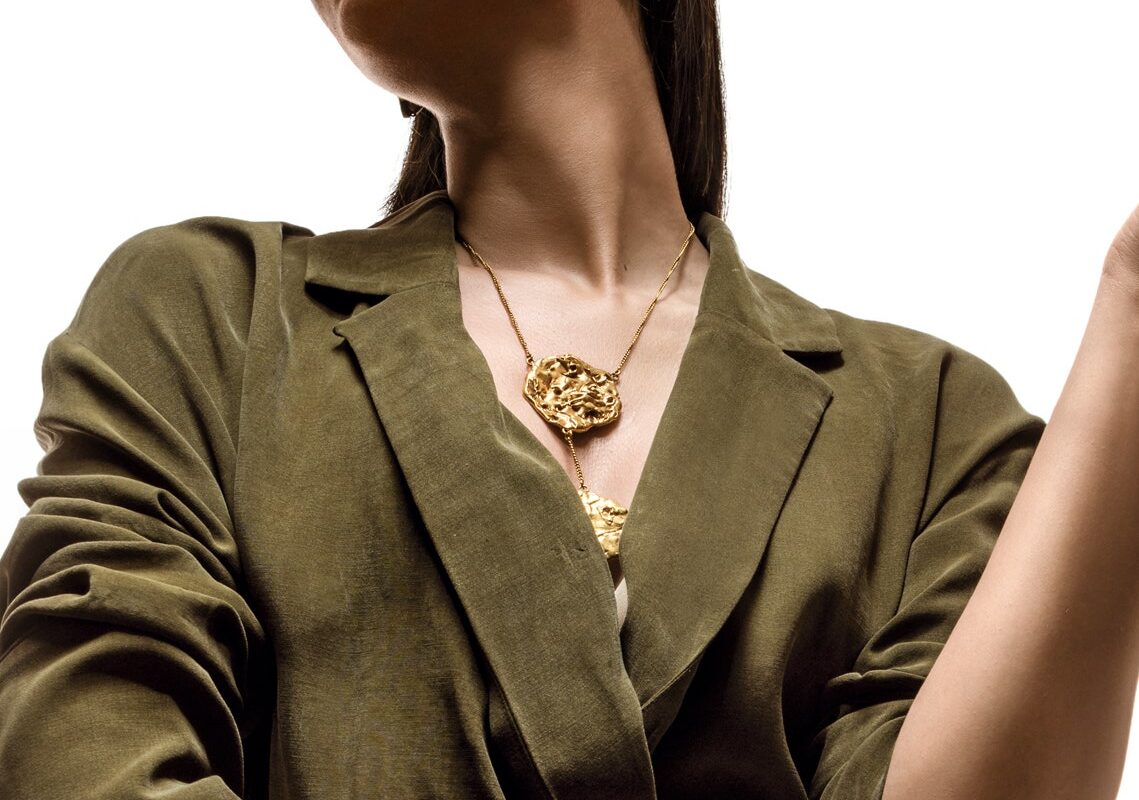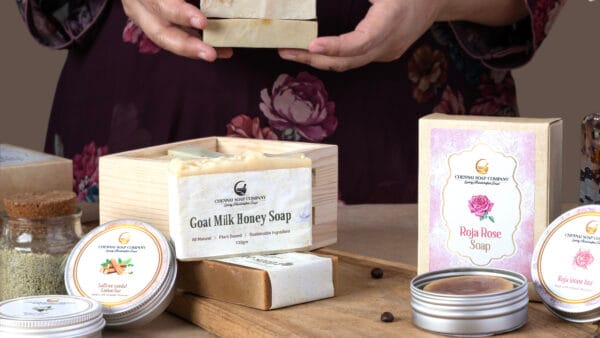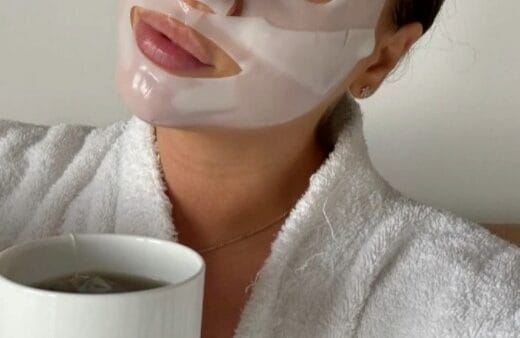Conversation about the danger of blue light has gotten that much more common in recent months as we’re all spending more time than usual on the computer, phone and television as we work from home. But it’s not just the usual suspects—fine lines and pigmentation—that you should take into account. Over time, exposure to all that HEV light (plus the posture you sit in while exposing yourself to it), can result in deep-seated damage to the skin on the face and neck, causing early signs of ageing to be that much more evident. We spoke to doctors across the board for their take.
Dark circles and puffiness
“Excessive screen time can lead to digital eye strain or computer vision syndrome which is one of the most common issues seen. Patients come with symptoms like dry eyes, itchy eyes, blurry vision and headaches,” says Dr Lipika Roy, paediatric ophthalmologist and eye surgeon at Centre For Vision and Eye Surgery in Chennai. “Light emitted by personal electronic devices is not bright enough to damage human retina but it is able to stimulate blue light sensitive ganglion cells leading to delay sleep onset, reduce sleep quality, stress related disorders and anxiety and headaches,” adds Dr Roy. This in turn results in dark circles under the eye, early wrinkles, puffiness all leading to early skin degenerative changes.
Dermatologist Dr Geetika Mittal Gupta advises, “Switch to night mode (it’s less bright) and make sure you don’t sleep next to your phone. It messes up the circadian rhythm of the body leading to disturbed sleep which has a direct impact on your skin.”
Dehydration plays a big role, especially in the area around the areas. “So, make sure you pick an eye cream that suits your eye concerns. There are many eye creams with caffeine, retinols, peptides and acids for your eyes. To see real benefits of an eye cream, stick to it at least for four to six weeks,” adds Dr Gupta. Want an instant go-to for puffy eyes? “Try soaking two green tea bags in a cup of water in the fridge and applying them to your eyes for about 10 minutes. Caffeine when applied cold can also have a cooling effect too,” she says.
Fine lines and dull skin
“Blue light, one of the shortest visible wavelengths, penetrates more deeply than UV rays and reach the deepest layer of our dermis. Constant exposure to blue light causes premature skin ageing, which means the skin becomes dull and dehydrated, and worsens uneven texture and skin tone,” says Dr Pankaj Chaturvedi, consultant dermatologist and specialist hair transplant Surgeon, MedLinks. HEV is slow and steady, and has a deeper impact.
“People draw a parallel between the sun’s blue light and say it is not harmful at all. But this is incorrect,” believes says Prashanthy Gurugubelli, founder of skincare brand Daughter Earth. “Natural blue light is scattered by the time it reaches the Earth, however blue light from digital devices is short wave enriched, meaning that it is at a higher concentration than we get from the outside,” she says. To fight it, look for products that help absorb and break down HEV—Daughter Earth’s Absolut Serum blends a natural retinol alternative bakuchiol with natural actives that help block blue light, like capsanthin esters, green tea and carrot root extracts.
Tech neck
Those two fine lines across your neck can be attributed to craning your neck over your phone, an area uniquely at risk for wrinkles and sagging. The delicate skin from the chin to chest is prone to ageing first, so early signs are that much more evident. The fix? Moisturise and massage. Applying products enriched with peptides, ceramides and hyaluronic acid in an upwards and outwards manner can help defy gravity.
Pigmentation
“While the intensity of damage is still a subject of ongoing research, what is undisputed is its impact especially on Indian skin,” says cosmetic chemist, Aneesh Sheth, founder of skincare brand Dr Sheth’s. Because of our high concentration of melanin in Indian skin, the blue light can darken pigmentation and deepen tanning. Simply put, blue light promotes stressors in skin that cause photo-ageing; that is, ageing from exposure to light. Though meant for indoor dehydration, Dr Sheth’s indoor Mist contains butter bush, which helps to absorb blue light and prevent it from entering deep into the skin.
The article was first published in Vogue





